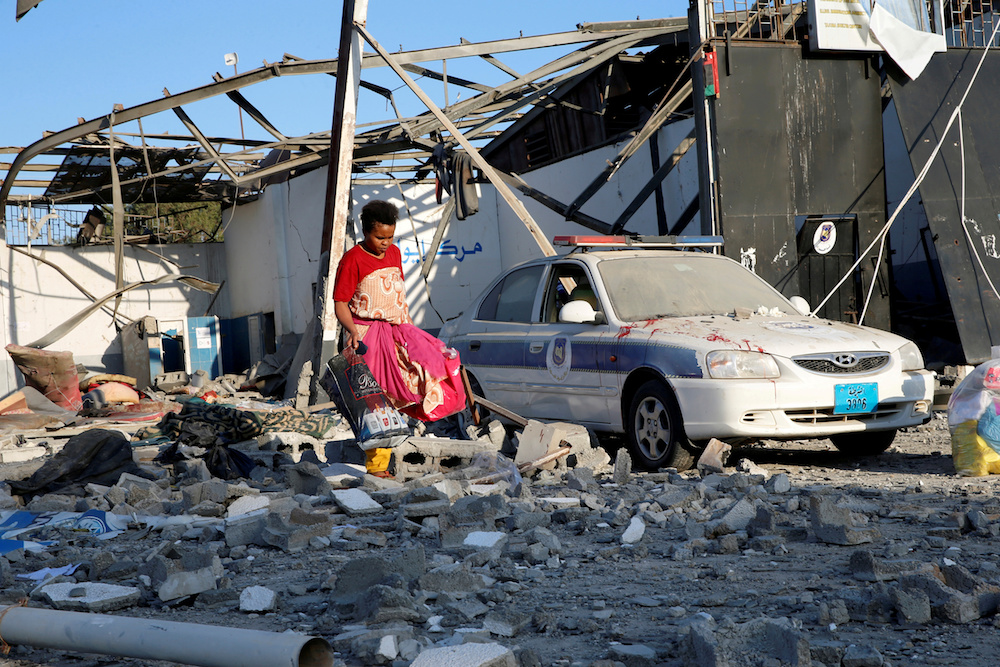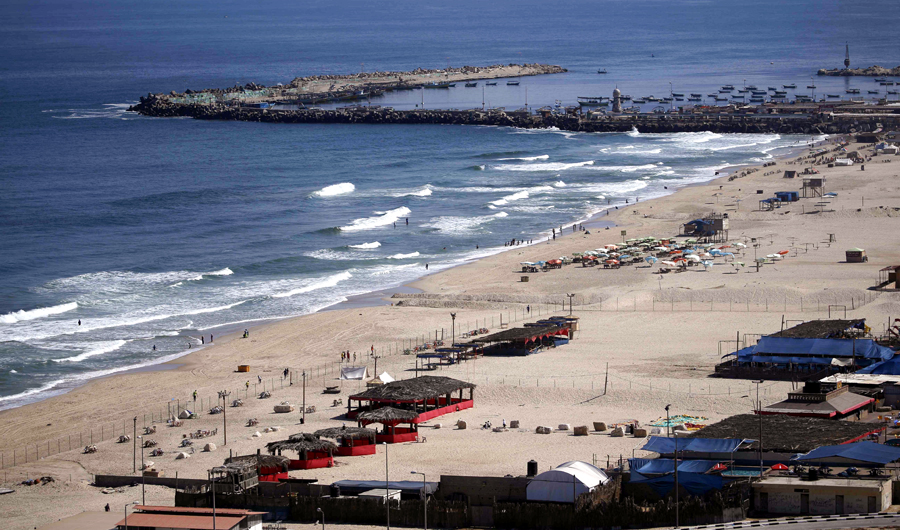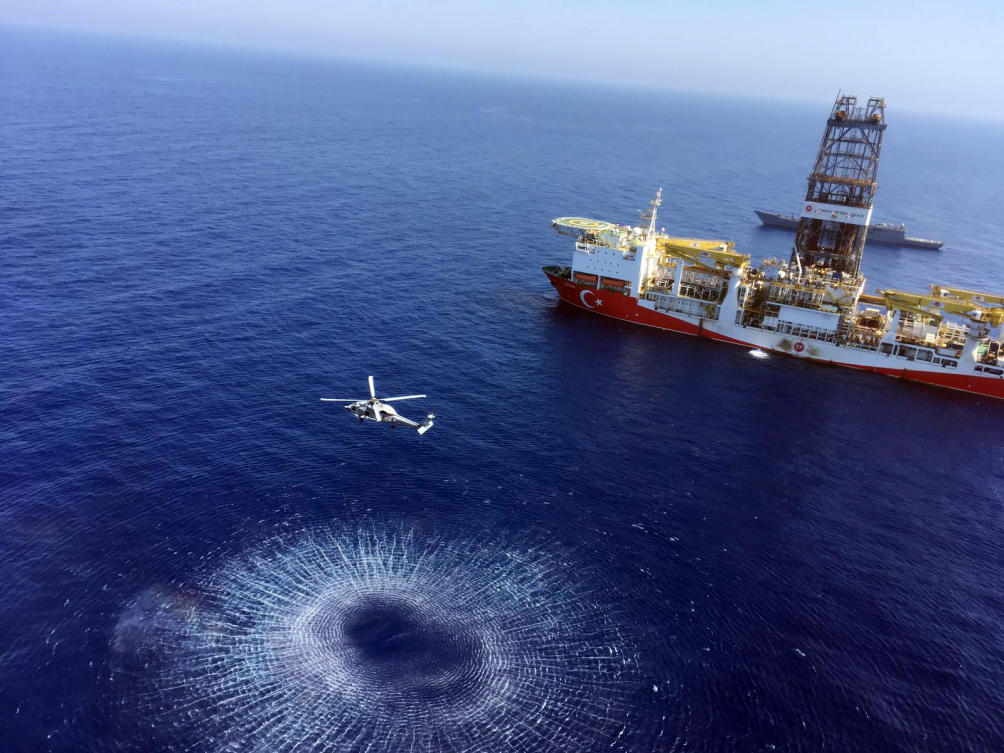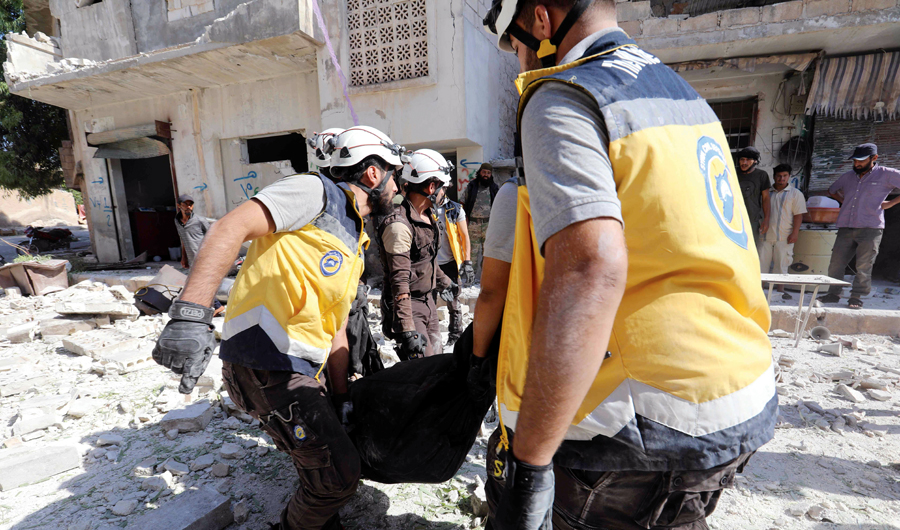GAZA CITY: During the summer, middle-class Palestinians in the Gaza Strip head for chalets and swimming pools for a short break, rather that the seaside. The prospect of a trip to the beach is not so attractive when the waters are heavily polluted after years of raw, untreated sewage being pumped into the sea.
Demand for the chalets has been growing since that start of the siege that was imposed on the Gaza Strip in 2007, and has increased particularly sharply in the past few years as a result of the total pollution of more than 60 percent of the waters along the coast and the partial pollution of the rest, extending to about 40 kilometers offshore.
While the chalets offer relatively better-off Gazans the chance to avoid the polluted sea, the majority — who rely on relief aid to survive, as a result of high levels of poverty and unemployment — are not so lucky. For them, swimming in the filthy waters is the only option if they want a break.
Ibrahim Abu Dibaa work worked as a beach lifeguard for several years and loved it, but gave it up five years ago over fears of disease from the pollution.
Unofficial estimates suggest that hospitals in the Gaza Strip treat dozens of people daily, children in particular, for intestinal infections and skin diseases caused by swimming in contaminated sea water.
Dibaa said he takes his family on a one-day chalet vacation so his children can play and swim safely.
“I have a lot of memories with the sea, and when I see it like this I almost cry and I deeply grieve for the thousands of Gazans who have no alternative to the sea, despite the danger of swimming in it,” he said.
Khaled Altibi, the head of the water-treatment department at the Ministry of Health, said the latest statistics, from April, revealed that 62 percent of the sea around Gaza is polluted. He added that this is better than the same time last year, as a result of efforts to ensure wastewater treatment plants can operate for longer periods.
FASTFACT
While the chalets offer relatively better-off Gazans the chance to avoid the polluted sea, the majority are not so lucky. For them, swimming in the filthy waters is the only option if they want a break.
Altibi said that pollution poses a serious danger to the health of Gazans because contaminated water contains bacteria, fungi and viruses contain or cause diseases that can be transmitted to humans easily.
Mohammed Dawoud knows this only too well. He said his family went to a section of the shore at Khan Yunis, in the southern Gaza Strip, that was supposedly safe according to a map issued by the authorities. However, his 9-year-old daughter, Alia, subsequently fell ill with fever, severe diarrhea and red blisters on her body. When he took her to a hospital, medics told him she was suffering from intestinal disease caused by swimming in and swallowing sea water contaminated by sewage. As a result, Dawoud is boycotting the sea.
“I will never risk my family and my children again,” he said. “Health is more important than the sea. If I have to swim I will go to a private swimming pool.”
Ali Abu Hajjar does not have the money to go to a private pool instead of the sea. Instead, he wants to take with his family to a seaside area believed to be largely safe north of Rafah, which was an Israeli settlement before the Israeli withdrawal from the Gaza Strip in 2005.
He is government employee who is only being paid 40 percent of his salary because of the financial crisis in Gaza. He said that the cost of hiring a chalet for a day or a night is about 350 shekels ($100), which is equivalent to about a third of his monthly salary. A few years ago, the cost of a chalet was up to $ 250, but the economic situation as forced the prices down.
Heba Abu Hamad and 12 of her friends decided to share the costs and take their children on a group trip to chalets during the summer instead of going to the seaside.
“These collective group trips, in which we share the financial cost, make them available several times during the summer without burdening us under difficult economic conditions,” she said. Such group trips cost about 50 shekels, depending on numbers.
Chalet owner Mohamed Sobh said he tries to keep his prices are affordable. They range from about $100 to $120, slightly higher on Thursdays and Fridays, and vary depending on the length of the booking and whether people stay during the night or day.
He noted that many people are joining with friends to take advantage of lower-cost group bookings.
Salah Abu Hasira, the head of the Palestinian Authority for Restaurants and Tourist Services, said there are about 300 holiday chalets in the Gaza Strip, and competition is high during the summer season to attract people who want to avoid the pollution of the sea and the difficulties that come with trying to travel to other countries. He added that the chalets have become a common “respite” for those with the financial ability to rent them.
“The spread of chalets and investment pools in Gaza is a natural phenomenon,” said Hamed Jad, economic editor of Al-Ayyam newspaper, as a result of the Israeli siege, the inability of many people to travel further afield, as well a desire to avoid the polluted sea.




